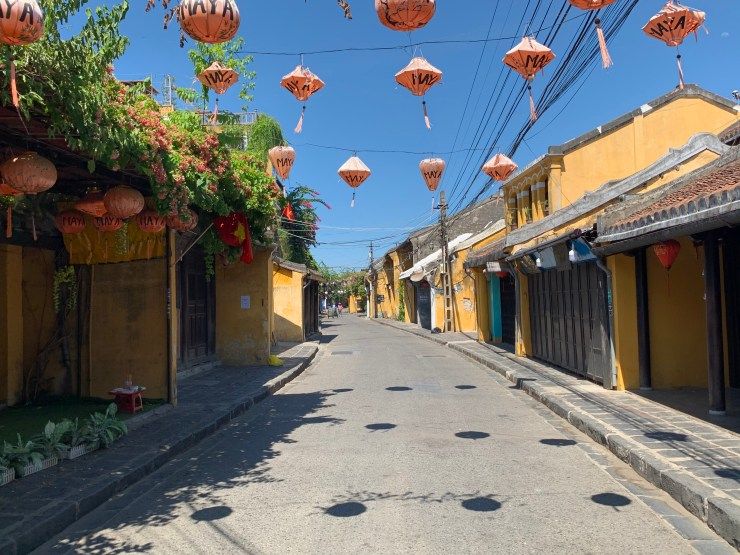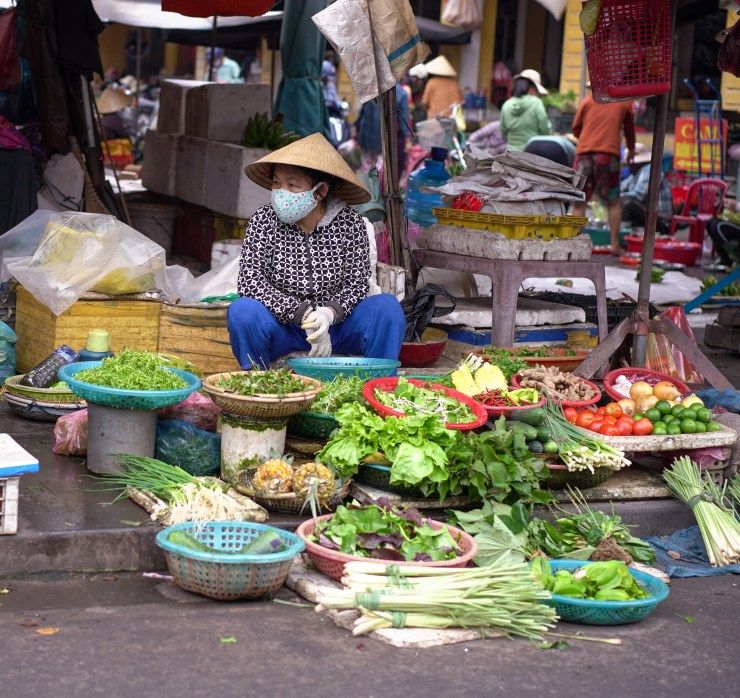Fake Milk, Fake Medicine, and the Endless Blame Game
Bảo Lâm wrote this Vietnamese article, published in Luật Khoa Magazine on April 24, 2025. In early April, a criminal

After nearly 100 days of zero new confirmed cases in the local community, within the last 10 days, there has been a jump in the number of patients contracting the virus in various cities in Vietnam.
According to official figures, in the six months from January 23 to July 25, there were only 140 local cases, the rest were imported patients, and zero fatalities. Since July 25, in a period of less than two weeks, more than 300 new local cases have been confirmed with 10 deaths so far.
Da Nang, the third largest city of the country, has become the new epicenter of the pandemic.
While this new surge seems to have caught the entire nation by surprise, in reality it is a scenario that was long written on the wall, with the pandemic having never really ceased to rock countries after it first appeared on the world stage in January 2020 (the first reported case outside of China). And though it has created a new scare among citizens, it is a positive and necessary alarm.

More than three months without domestic positive cases had put the whole nation in a complacent mode. Even the health care staff at hospitals had lowered their guard. Most of the initial cases from July 25 were linked to patients and their caretaker relatives in Da Nang hospitals.
Since then, the virus has quickly spread throughout the community and to other cities.
Fortunately, it does not take long for the whole system to restart and quickly return to crisis mode. Da Nang was almost immediately put under partial lockdown, with thorough contact tracing being carried out for every new case. People who had been in close contact with new positive cases were put under quarantine. Medical teams and personnel from Hanoi and Ho Chi Minh were sent to the epicenter to help relieve the pressure and the wearing of face masks in public in big cities became mandatory again.
There is reason to be optimistic about the ability of the country to contain the new wave despite it having caught everyone off guard.

With the initial success in containing Covid-19, there has been an ongoing debate among citizens on whether Vietnam’s authoritarian system is better equipped than other democratic societies to cope with a pandemic. However, focusing on governing systems might miss some critical points.
Comparing Vietnam with Taiwan, an exemplary success in the fight against this pandemic, may provide some useful insights.
At first glance, the two countries could not be more different. One is a communist state, the other one of the most vibrant democratic systems in the world. At closer look, Vietnam and Taiwan share some vital similarities in the fight against Covid-19.
They both are next to China, the origin of the pandemic. Both governments, and especially their people, have the same distrust of the Chinese Communist Party, hence the high alert mode from the very beginning, long before other countries took this infectious disease seriously. They also share painful experiences from the SARS pandemic in 2003, which also originated from China. With those scars still fresh in mind, going through this crisis is like bathing in the same river twice. They knew how and where to swim.
The culture and society also played an important role here.
Both countries are still dominated by Confucious-like ideals about the need for a harmonious society where collectivism trumps individualism. In the case of major crises like a pandemic, this kind of mindset helps glue the community together faster, quickly putting everyone into the same “for the common good” mode.
This particular pandemic, Covid-19, in which the elderly are the most vulnerable, also highlights one important aspect: how societies treat and value their aged populations.
In Vietnam, like Taiwan, most families have at least one senior member living under the same roof. Therefore, most people, even the younger generations, despite being in low-risk groups, still voluntarily took extra precautions to protect their family members.
Opportunities lie in the midst of every crisis, as the old saying goes. And there are many opportunities for a change-demanding society like Vietnam.
While the resurgence has shattered the illusion of exceptionalism, deflating many hardcore aficionados of the authoritarian system, it has also inflated the constant alert mindset, which is a life-and-death difference in the fight against most infectious diseases.
The health crisis also puts the whole governing system in the spotlight, pushing the need for greater transparency and accountability.
With the virus always seeming to have a head start, the authorities have had no other option than to constantly play catch-up. Around-the-clock updates and publicized data and numbers are now the new normal. Government officials are forced to focus on containing the spread of the pandemic. Even when the pandemic is over, it is hard to imagine returning to “the old normal”.
The virus has also created space for a newborn civil society. With the government’s resources stretched thin and vastly inadequate, citizens and volunteer groups have organized themselves for a wide range of mutual-support activities, from donating basic necessities to setting up coordinating teams to offer transportation for supplies and people in need. Again, when the pandemic is over, citizens who have trained themselves in this new normal will not be easily caged again. Instead, they will demand a greater place on the stage in building a common and better society for themselves.
A deadly pandemic is obviously not an ideal scenario to push for a positive change in any society. But as in any crisis, a good response brings along good reforms.
There are reasons to be optimistic about the emergence of some form of positive change after the country has gone through this extraordinary period.
Vietnam's independent news and analyses, right in your inbox.